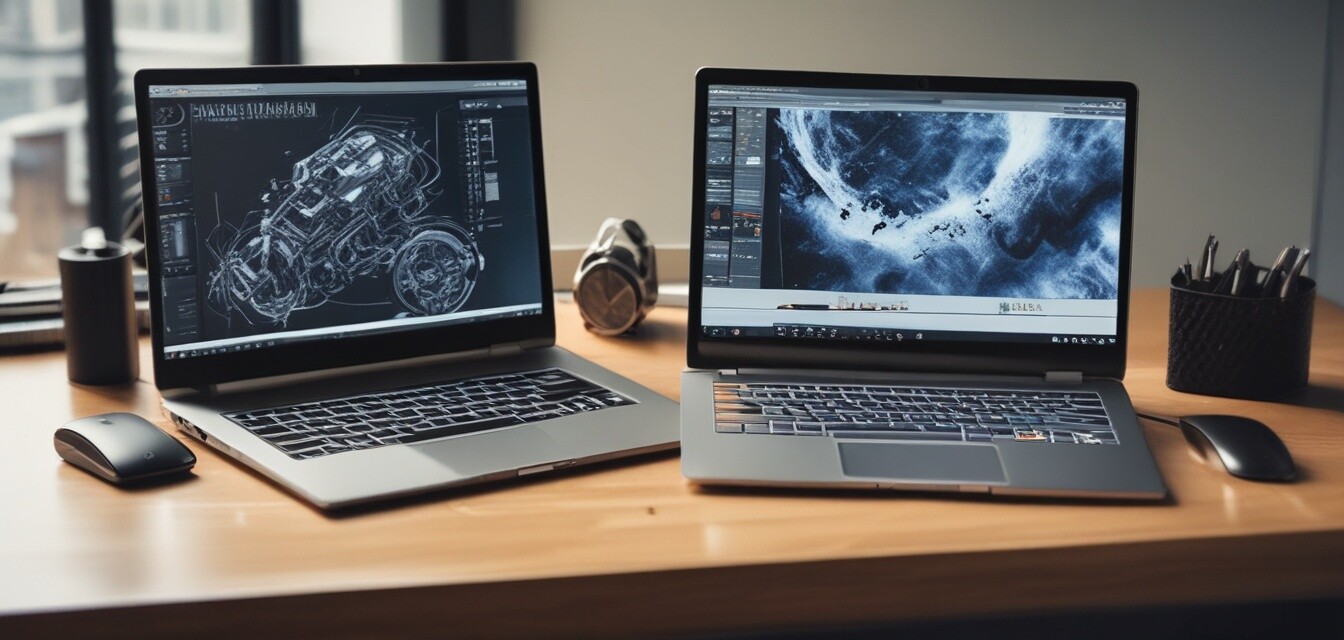
Best laptops for engineering students
Key Takeaways
- Powerful processors are essential for complex calculations.
- Minimum 16GB RAM is recommended for multitasking and heavy software.
- Dedicated graphics cards can enhance 3D modeling and design work.
- Lightweight and portable designs are important for students on the go.
- Battery life should support long hours of study and project work.
Choosing the right laptop is crucial for engineering students who rely on powerful devices to run demanding software and perform intricate calculations. In this guide, we will explore the best laptops suitable for engineering students, considering key specifications, features, and price points. Whether you are designing 3D models or conducting detailed simulations, the right laptop can significantly enhance your productivity and learning experience.
What to look for in a laptop for engineering studies
Engineering students often require specific features in a laptop to efficiently tackle their coursework. Here are essential factors to consider:
- Processor: Look for Intel Core i5, i7, or AMD Ryzen 5, 7 processors for optimal performance.
- RAM: A minimum of 16GB is recommended; 32GB for heavier workloads.
- Storage: SSDs offer faster loading times; aim for at least 512GB.
- Graphics: Dedicated GPUs like NVIDIA GeForce for graphical tasks and simulation.
- Display: An IPS screen for better color accuracy and viewing angles, ideally 15 inches or more.
- Battery life: At least 8 hours to ensure it lasts through classes and group projects.
- Weight: Lightweight for portability between classes and study sessions.
Top laptops for engineering students
| Laptop Model | Processor | RAM | Storage | Graphics | Weight |
|---|---|---|---|---|---|
| Laptop A | Intel Core i7 | 16GB | 1TB SSD | NVIDIA GeForce GTX 1650 | 4.2 lbs |
| Laptop B | AMD Ryzen 7 | 32GB | 512GB SSD | NVIDIA GeForce RTX 3060 | 3.8 lbs |
| Laptop C | Intel Core i5 | 16GB | 1TB SSD | Integrated Graphics | 3.5 lbs |
Comparison table of features
| Feature | Laptop A | Laptop B | Laptop C |
|---|---|---|---|
| Processor | Intel Core i7 | AMD Ryzen 7 | Intel Core i5 |
| RAM | 16GB | 32GB | 16GB |
| Storage | 1TB SSD | 512GB SSD | 1TB SSD |
| Graphics | NVIDIA GeForce GTX 1650 | NVIDIA GeForce RTX 3060 | Integrated Graphics |
Budget considerations
The price range for laptops can vary significantly based on their specifications. Here’s a quick overview of what you can expect:
- Entry-Level: $500 - $800 - Suitable for basic engineering software.
- Mid-Range: $800 - $1200 - Good for most engineering tasks with decent performance.
- High-End: $1200 and above - Ideal for heavy software, simulation, and graphics work.
Where to buy
You can find good deals for laptops at various retailers. Here are some options:
- Budget laptops - Ideal for cost-effective solutions.
- Gaming laptops - These often have the required graphical power.
- Ultrabooks - Thin and lightweight, perfect for portability.
Conclusion
Choosing the right laptop as an engineering student is essential for providing the performance and portability necessary for academic success. Make sure to consider your specific needs based on your coursework and select a laptop that balances power, efficiency, and budget. With the right laptop, you’ll be better equipped to tackle challenging projects and excel in your studies.